Results
-
£109.99
Charanga For Trumpet - Boudewijn Cox
Boudewijn Cox is chiefly known as a Flemish composer in the modern classical music scene, but he has his roots in jazz.Charanga was a composition assignment from the "De Hoop" Ossendrecht music association and was created by Frank van der Poel in November 1999. Frank van der Poel, to whom this work is dedicated, is a well-known trumpet player and a renowned soloist who specialises in light music. He is also very esteemed as a big band lead trumpet.
Estimated dispatch 7-14 working days
-
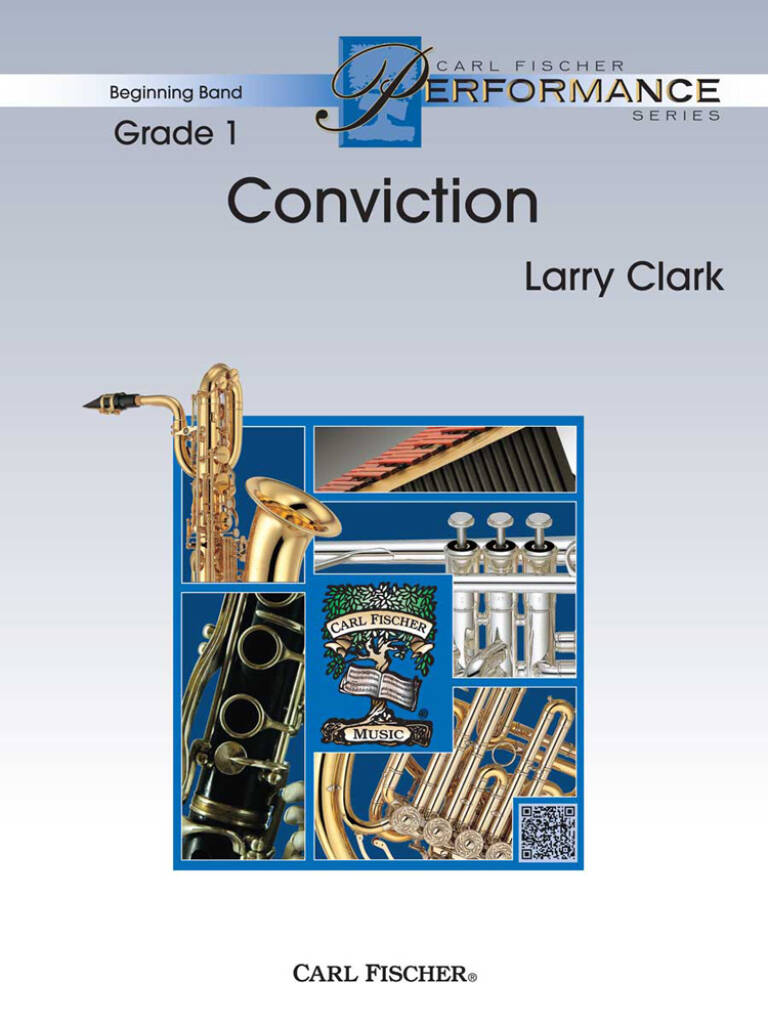 £59.95
£59.95Conviction - Larry Clark
For several years, Larry Clark's music for beginning band has set the standard for musical excellence. He always finds a way to make his pieces fresh and sophisticated, incorporating contemporary harmonies with tuneful melodies that students love to play. He is also a master at knowing exactly what this level is capable of and writes technically easy music that still makes any band sound and feel great!
Estimated dispatch 7-14 working days
-
£112.50
Troopers Tribunal - Henry Fillmore
Troopers Tribunal is a circus-style march written as only Henry Fillmore could. It is furious, fast, and enjoyable. It is the first circus march that he composed in his long and illustrious career, and in typical Fillmore fashion, he tricked his father into publishing the piece by making him think it was a military march! It certainly is not that, but instead, great fun!
Estimated dispatch 7-14 working days
-
£72.95
Adversary - Larry Clark
Now, this is what composer Larry Clark does best! He gives developing bands daring compositions that they just absolutely love to play. In Adversary, an epic minor piece, he explores the villainous character that appears in most great stories. The added dimension of ?? time give this piece an intriguing rhythmic feel. It is full-sounding, but never taxing to the abilities of the developing band. A surefire winner!
Estimated dispatch 7-14 working days
-
£72.95
Military Escort March - Harold Bennett
The most popular of Harold Bennett's (a.k.a Henry Fillmore) marches, Military Escort is one that even Sousa wished he had written. From the opening trumpet fanfare to the tuneful trio, this classic is one of the best! Larry Clark has arranged this, as he has many other Harold Bennett marches, to be better suited for today's bands. This is a proven winner in an arrangement that you know will work.
Estimated dispatch 7-14 working days
-
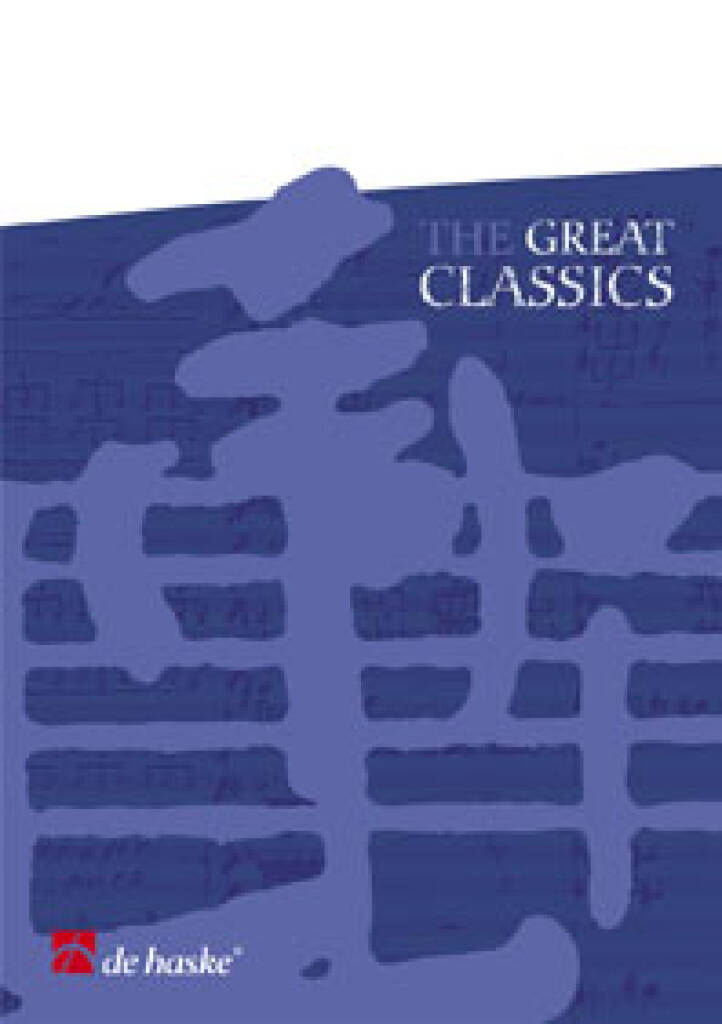 £159.99
£159.99Selections from Boris Godunov - Modest Mussorgsky
Composer Modest Moussorgsky (1839-1881) came from the prosperous environment of Russian nobility. In 1865, after his officer's education, he joined the guard's regiment in St. Petersburg. Here he met a number of well-known colleague-composers, including Balakirev, Cui, Rimsky- Korsakov and Borodin. They strived to develop a "classical style" of composing while at the same time retaining a strong Russian influence. His opera Boris Godunov tells the tale of Boris, who with the support of the people, declared himself Tsar, but totally fell short of the role. The opera became popular in the re-orchestrated version produced by Rimsky-Korsakov in 1896. Tohru Takahashi has usedthe beautiful musical themes of this opera in Selections from Boris Godunov - a captivating work for concert band.
Estimated dispatch 7-14 working days
-
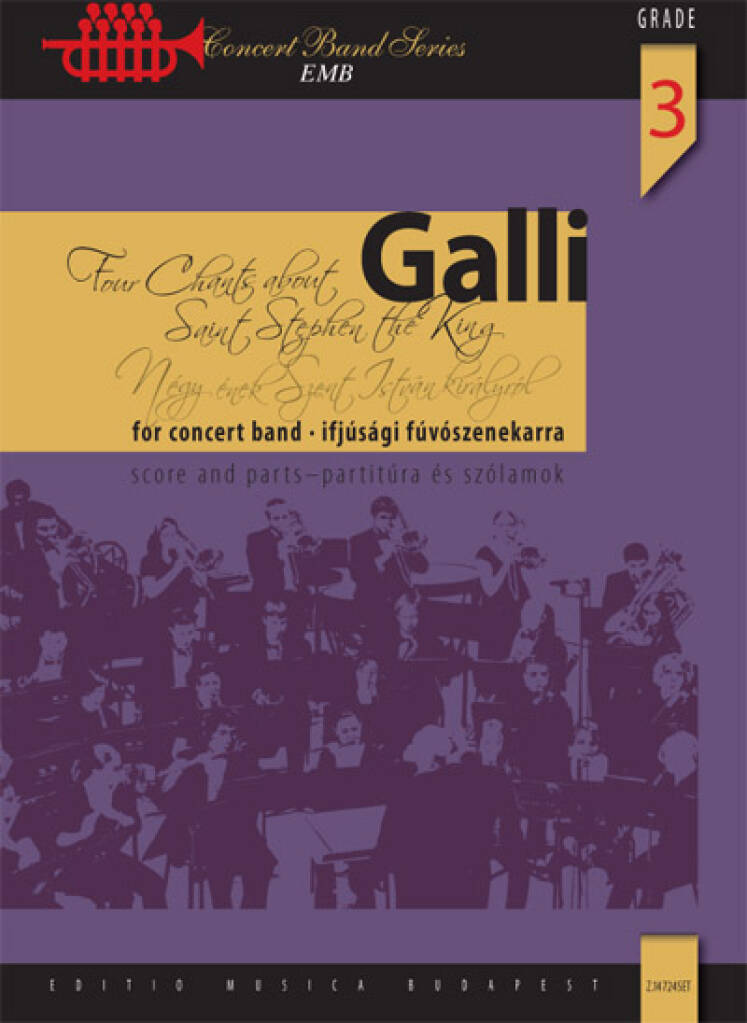 £67.50
£67.50Four Chants about Saint Stephen the King
Jnos Galli (1921-2006) was a conductor, composer, music teacher, a well-known and highly respected personality in Hungarian wind music life. As a music teacher he directed numerous string and wind ensembles and choirs, made hundreds of transcriptions for wind orchestras, and instrumented works for ensembles of all sizes and formations. The most important of his works are his series of volumes of marches, folksong arrangements and church music. He was excellent at instrumentation. For its fine sound and easy playability we recommend to youth wind bands and their conductors this work of his composed in memory of the king who founded the Hungarian state.
Estimated dispatch 7-14 working days
-
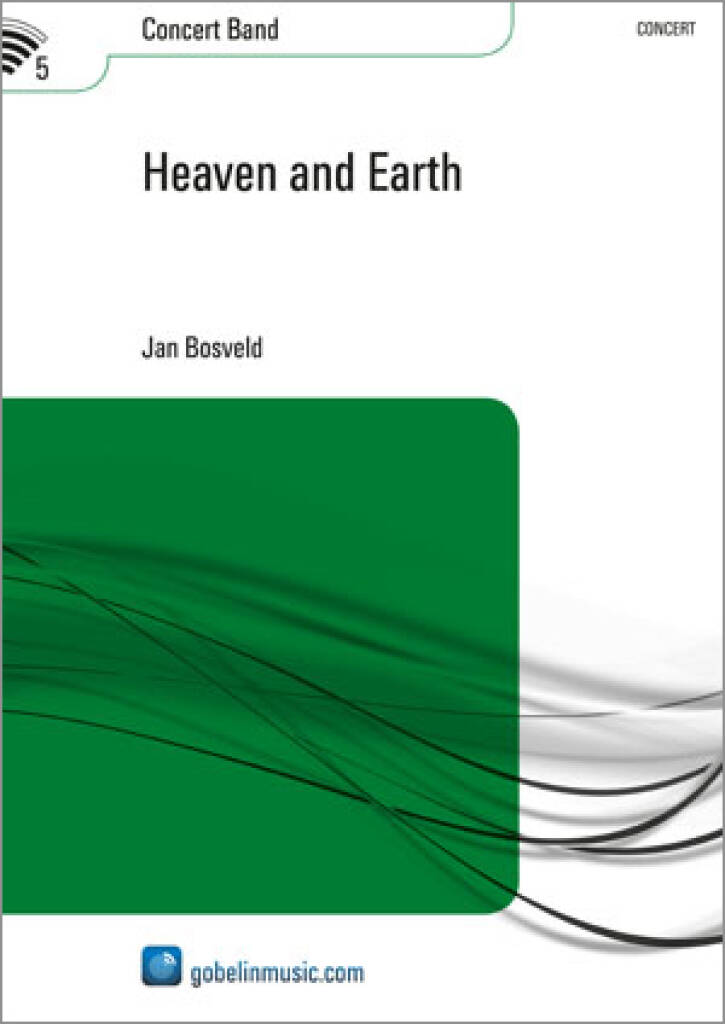 £149.99
£149.99Heaven and Earth - Jan Bosveld
An Astrological Composition. Astrology is based on the principle that each sort of time has its own quality. In order to determine the quality of a particular moment, an astrologer looks at the position of the planets in the solar sustemat that moment. Each planet has specific types of energies and its location provides unique information for a certain moment on Earth. Thus: its position in the sky tells something about what happens on Earth. In this composition the typesof energies of four planets are musically translated. The four planet were not randomly chosen. There are two pairs, whose influence and energy are opposite. Venus and Mars. Venus represents the feminine principle: harmony, beauty,art, and the ability to make relationships and to keep the peace. Venus connects, and communicates in order to maintain the balance. Mars represent the masculine principle: winning, impulsiveness, enthusiasm, and sexual energy for procreation.He creates war enabling the strongest to triumph. Mars is musically depicted in a stirring march in which enthusiasm characterises the masculine character. Saturn and Jupiter. Saturn represents concentration and withdrawal: the strongnotion of responsibility, seriousness, self-discipline and melancholy. Saturn is the hermit who will conquer his fears and worries in minimal conditions and by self-chastisement. This contemplative character is depicted in the music as if it isalmost standing still, which also reflects the given character of this planet. Jupiter represents growth and expansion: the positive, self-confidence, the good Samaritan, the healer. Jupiter is the philosopher who will make the world a betterplace, sees future possibilities, and searches for eternal values. He is the prophet who sometimes rants and raves his doctrine and proclamations, resulting musically in a whirling and upbeat finale. not looking back at what has been but searchingfor new challenges. "Heaven and Earth" was commisioned by the Music Lending and Information Centre (MUI), a department of the library for the province of Gelderland in Arnhem, The Netherlands.Een astrologische compositie. Astrologie is gebaseerd op het principe dat elke tijd zijn eigen kwaliteit heeft. ""Tijd voor koffie"" of ""het was je tijd nog niet"" als bijvoorbeeld een baan aan je neus voorbij is gegaan. Om de kwaliteit van een moment te lezen kijkt deastroloog naar de stand van de planeten in ons zonnestelsel op dat tijdstip. Elke planeet heeft specifieke energien en de plaats aan de hemel geeft unieke informatie over een bepaald moment op aarde. Oftewel: de stand aan de hemel (Ouranos) verteltiets over wat er op aarde (Gaia) gebeurt. In deze compositie worden de energien van vier planeten muzikaal vertaald. De vier planeten zijn niet lukraak gekozen. Het zijn twee paren, die qua invloed en energie tegenovergesteldzijn. Venus en Mars. Venus vertegenwoordigt het vrouwelijke principe: harmonieus, schoonheid, de kunst, het vermogen om verbindingen aan te gaan en de vrede te bewaren. Venus geeft door en verbindt om de balans te bewaren. Marsvertegenwoordigt het mannelijke principe: winnen, anderen aftroeven, impulsief en enthousiast, seksuele energie voor de voortplanting. Mars creert oorlog om de sterkste te laten zegevieren. Venus staat tot Mars als vrede staat tot oorlog, alsverbinden staat tot verbreken, als harmonie staat tot competitie. Jupiter en Saturnus. Jupiter vertegenwoordigt groei en expansie: het positieve zelfvertrouwen, de weldoener, de genezer. Jupiter is de filosoof die de wereld wilverbeteren, vooruitkijkend en zoekend naar eeuwige waarden, de profeet die soms al te bombastisch zijn leer verkondigt. Saturnus vertegenwoordigt concentratie en inkrimping: het sterke verantwoordelijkheidsbesef, soberheid, zelfdiscipline enmelancholie. Saturnus is de kluizenaar die onder minimale voorwaarden en zelfkastijding zijn angsten wil overwinnen. De harde, serieuze werker die volgens vaste regels stug doorgaat om aan zijn hoge eisen te voldoen. Jupiter staat tot Saturnusals uitbreiding staat tot inkrimping, als zelfvertrouwen staat tot faalangst, als vrijheid staat tot structuur.
Estimated dispatch 7-14 working days
-
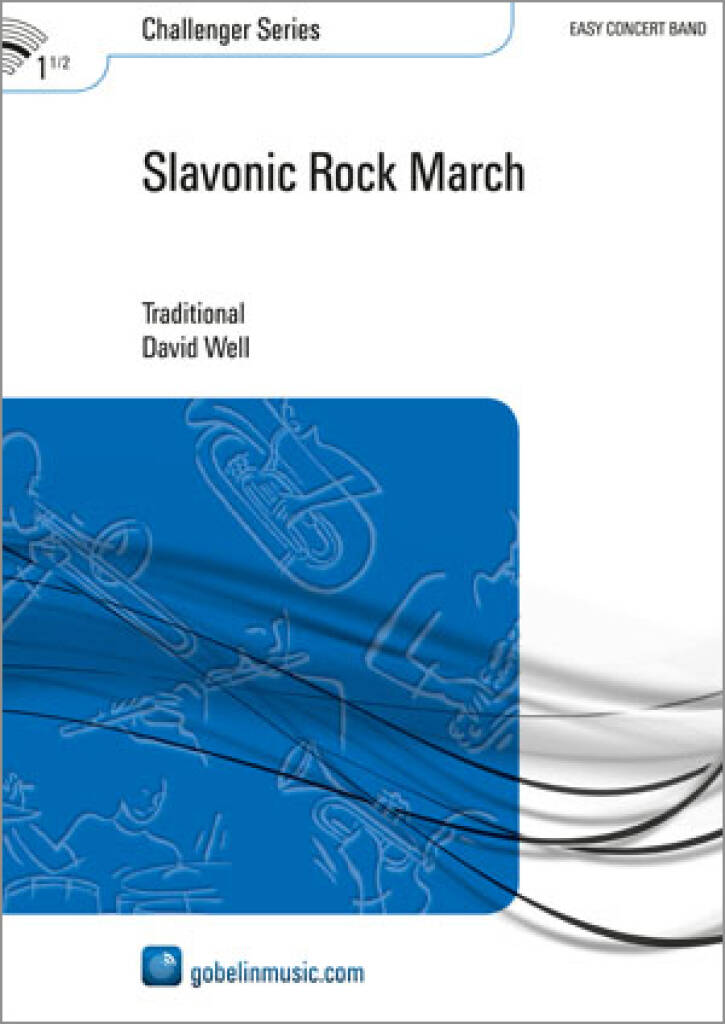 £60.99
£60.99Slavonic Rock March
According to his teachers, Pyotr Ilyich Tchaikovsky (1840-1893), was not particularly gifted. His special talents were acknowledged only in 1865 when he had been working for the Ministry of Finances for some years. In 1866 he was appointed teacher at the Conservatory and applied himself to composing. His oeuvre is fairly extensive and many of his compositions receive a high ranking on the international list of classical music, including his six symphonies, solo concertos (violin concerto and piano concertos), ballets (The Nut Cracker, Swan Lake), and his overtures (1812 and Romeo and Juliette). In 1893 Tchaikovsky died of Cholera after drinking a glass of infectedwater. His Slavonic March is a popular concert piece for symphonic orchestra that is still frequently performed in concert halls. David Well arranged the theme and created a contemporary march in rock style. Tchaikovsky once said to an unsatisfied teacher: 'I will be a great composer within 10 years time.'
Estimated dispatch 7-14 working days
-
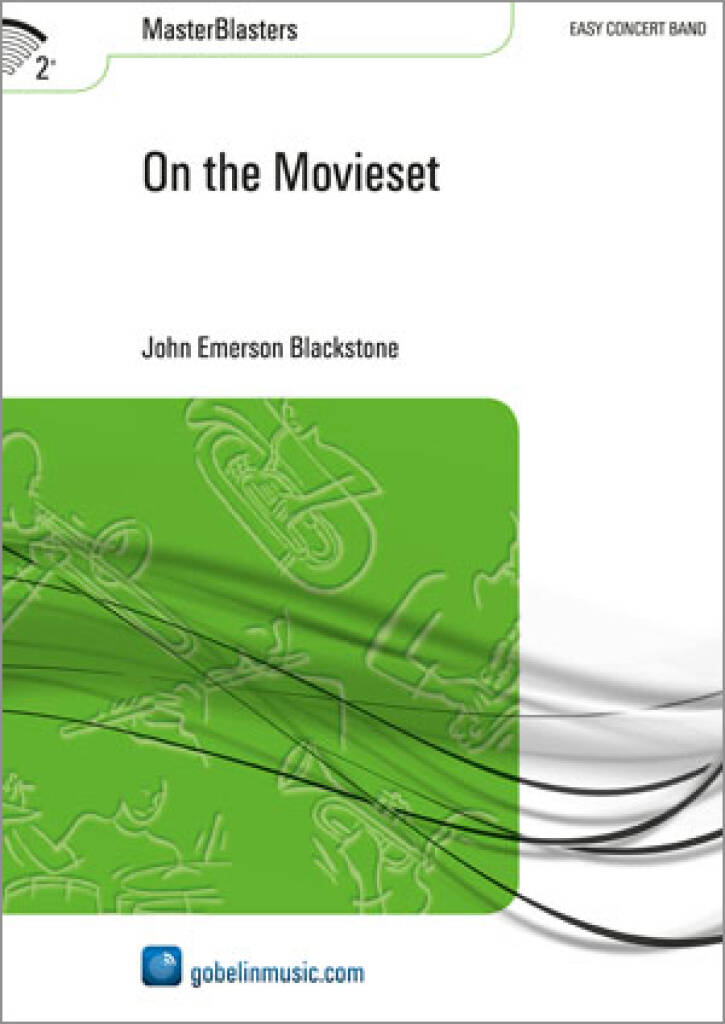 £84.99
£84.99On the Movieset - John Emerson Blackstone
Glitter and glamour, good-looking people, a lot of Bling Bling and fast cars images like these will cross our minds when we think of the movie world. However, reality proves to be different : as a rule, a tremendous amount of work will have been done on the set before a film is ready to be shown on the big screen. A visit to an actual movie set inspired John Emerson Blackstone to write a composition bearing the same name. He had both seen a number of characteristic attributes and heard the typical phrases used in film making, and he incorporated them into 'On the Movie Set' . In the first part, 'The Clapboard', a 'director's assistant' is supposed to shout "Quieton the set'" and "Action!", as is done before a real scene is shot. Subsequently, in order to create the right atmosphere, the clacking of a 'Clapboard' should be heard. During a romantic scene we should be transported to another world by means of sweet sounds in the background, so romantic music is of course heard in the next part, 'Love Scene'. At the end of a long working day 'It's a wrap' is called on the set to inform everyone that the filming on that day is completed. Now there is only one more thing left to dream of : an Oscar..... Perf. Note: The use of the right props will add to the performance and appreciation of 'On the Movie Set'. A red carpet and a glamorous reception should give your audience the feeling they are attending a real 'opening night'!
Estimated dispatch 7-14 working days
